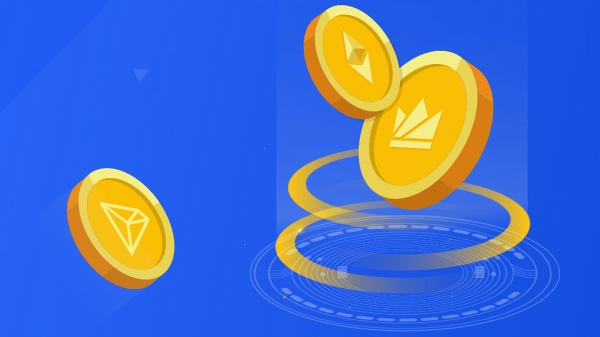Launch of decentralised exchange next month- WazirX
Several legal and industry experts who spoke to B2b said that decentralized exchanges are less legally complicated and provide greater transparency and control
- by Gaurav Grover 2021-07-28 10:11:33
Co-founder Nischal Shetty, India's largest cryptocurrency exchange by volume, said that it is in an advanced stage of launching its own decentralized exchange.
Unlike a centralized setup, where the exchange is the custodian of the client's cryptocurrency and controls who can or cannot open an account on it, a decentralized exchange operates without an intermediary institution to clear transactions. Trades are executed on self-executing smart contracts.
Shetty told that it is like creating software where peer-to-peer cryptocurrency trading can be facilitated. The decentralized exchange is currently in the testing phase and will launch next month.
"Since the DEX (decentralized exchange) does not own the data, even the authorities cannot go to the developer of the exchange and say that I want the data," Shetty said, adding that the data is available on the blockchain for everyone to see them.
This development comes in the name of WazirX, and has found itself in the crosshairs of the Indian authorities.
The Directorate of Enforcement (ED) issued a reasoning notice to WazirX in June asking the exchange to explain transactions worth Rs 2,790.74 crore due to violations of foreign exchange rules. The exchange is believed to be a response to the federal agency investigating money laundering.


Several legal and industry experts who spoke to B2b said that decentralized exchanges are less legally complicated and provide greater transparency and control for cryptocurrency holders, adding that there are fewer opportunities for hacking and price manipulation.
Matthew Chaco, a partner at Spice Route Legal, said that a decentralized exchange may face less risk from regulatory authorities. From a global legal perspective, decentralized exchanges are considered a less legal problem than centralized exchanges. India, sadly, has no nuance in the law. "
While the creator of the decentralized exchange can still be questioned by central authorities and regulators, Chacko said "there are more reasons to demand mitigation."
"The advantage is that no one can control your crypto. In most cases, it is more difficult for regulators to stop decentralized exchanges because they are owned by communities and not by a small group of individuals," said Akshay Agarwal, director of Blockchained India. , a blockchain-centric talent network.
Anyone in the world can use the decentralized exchange and it does not require the user to undergo any identification control such as KYC. Basically, users go to the platform to conduct peer-to-peer transactions and keep cryptocurrencies in their own wallets.
WazirX was asked to explain why "withdrawing from crypto wallets" is not a violation of currency regulations in India.
Shetty said that an increasing number of its 7.5 million users are interested in trading on a decentralized exchange.
There are several dozen decentralized exchanges around the world, such as Uniswap, Sushiswap, and MDEX, according to crypto-tracking website coinmarketcap.com.
"We know that we can offer something unique to a group of customers, especially those who may already be using our product but are seeking decentralization and have to move to a different brand," Shetty said.
Currently, there are no laws in India governing cryptocurrencies, including centralized or decentralized exchanges. There is no indication as to when the cryptocurrency will be scheduled and the official regulations of the Digital Currency Act of 2021. This bill, in its current form, is expected to criminalize not only trading but also the holding of crypto assets.
Salman Wars, managing partner at TechLegis Advocates & Solicitors, said the bill, which applies to all cryptocurrencies, is "extremely vague."
Cryptocurrencies and their various use cases are not correctly specified on the invoice. It is not clear from the bill what virtual currencies are and what the different types are. Hence the current situation is fluid.
Also read- Adani Wilmar aims to raise up to Rs 4000 Crore via IPO
Also read- Adani Wilmar aims to raise up to Rs 4000 Crore via IPO
POPULAR POSTS
Rupee Forecast 2025: Key Drivers Behind INR Weakness Against the US Dollar
by Shan, 2025-08-11 07:32:23
August 2025 IPO Preview: Big Listings from JSW Cement, NSDL, Knowledge Realty & SME Stars
by Shan, 2025-07-30 11:51:27
Ola Electric Q1 Results FY26: Revenue Falls 61%, Net Loss at ₹870 Cr - MoveOS 5 in FocusOla
by Shan, 2025-07-14 12:22:55
HAL, BEL & Data Patterns: 3 Defence Stocks Riding India's ₹50,000 Cr Export Ambition
by Shan, 2025-06-26 10:00:16
India GDP Forecast 2025-26 Raised to 6.5% by S&P: Key Drivers & Global Risks Explained
by Shan, 2025-06-26 10:30:46
Dalal Street Outlook: 5 Key Market Triggers to Watch This Week
by Shan, 2025-06-16 12:32:04
What is the Bond Market & How Does It Impact Your Investments?
by B2B Desk, 2025-02-05 09:42:55
RECENTLY PUBLISHED

Loan EMIs to Drop as RBI Slashes Repo Rate - Full MPC December 2025 Highlights
- by Shan, 2025-12-05 11:49:44

Pine Labs IPO 2025: Listing Date, Grey Market Premium, and Expert Outlook
- by Shan, 2025-11-05 09:57:07

The Agentic Revolution: Why Salesforce Is Betting Its Future on AI Agents
- by Shan, 2025-11-05 10:29:23

Top 10 Insurance Companies in India 2026: Life, Health, and General Insurance Leaders Explained
- by Shan, 2025-10-30 10:06:42

OpenAI Offers ChatGPT Go Free in India: What’s Behind This Big AI Giveaway?
- by Shan, 2025-10-28 12:19:11

Best Silver Investment Platforms for 2025: From CFDs to Digital Vaults Explained
- by Shan, 2025-10-23 12:22:46




 Subscribe now
Subscribe now 